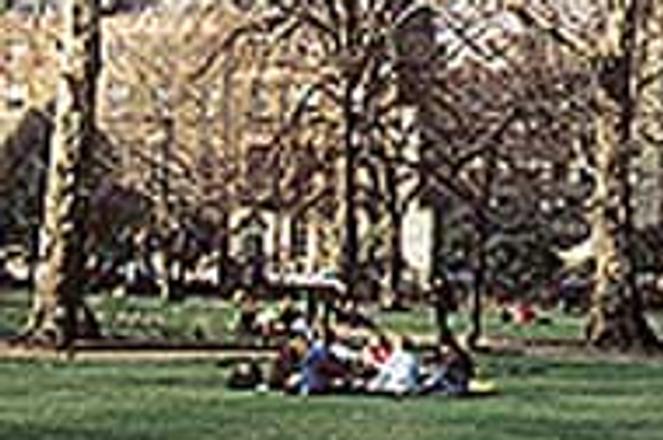Opposite London's Russell Park is the School of Slavonic and Eastern European Studies at the University of London.photo: Courtesy University of London
LONDON: Opposite central London's Russell Park, just a few metres from the famous British Museum, the School of Slavonic and Eastern European Studies offers students a programme in the languages and cultures of the Czech and Slovak Republics. Part of the University of London, the programme is the only place in Britain where students can receive university degrees for Slovak.
Since Slovakia is still a young and relatively unknown country to most Britons, finding a place to study the Slovak language and culture in Great Britain, let alone earn a full university degree in the field, remains a challenge. British students are still more drawn to higher-profile Slavic languages such as Czech, Russian and Polish, partly because destinations like Prague and Moscow remain more fashionable than Bratislava, and also because the Slovak government lacks the money to promote itself as aggressively as other countries do.
A look inside the London University Slavonic School shows that Slovak is far less popular than Czech. Students begin by studying both Slovak and Czech, but must decide after two years which one they will focus on; of the 13 students currently in the programme, 12 opted to focus on Czech while only one was attempting to attain a B.A. in Slovak.
"Students usually study Czech rather than Slovak," said Tim Beasley-Murray, an Englishman who is a professor of Slovak literature in the university's Czech and Slovak department. "They know more about the Czech language and culture than Slovak because many of them have been to Prague, which has become the most popular place to visit in central Europe."
But the discrepancy in knowledge about the two countries is due to more than Prague's current popularity. According to Lenka Miháliková, third secretary at the Slovak Embassy in London, the embassy gets scant funding for the promotion of Slovakia, leaving many Britons ignorant of the country and thus more vulnerable to Prague's well-advertised charms. "Many Brits believe that Slovakia is still a part of the Czech Republic," Miháliková said.
Why Czech?
In Britain, the Czech language is simply more accessible, Beasley-Murray said. Finding literature translated into Czech is much easier than finding literature translated into Slovak, mainly because the Czech embassy has a culture centre where anyone can read Czech books and newspapers, practise speaking Czech and learn more about the country. "One disadvantage for Slovakia is that the embassy doesn't even have a cultural attaché," he said.
Despite the lack of promotion on the Slovak side and the lack of awareness on the British, co-operation between the university and the embassy in London was characterized by Beasley-Murray as "very good."
"We do a lot together," he said. "We organise conferences and seminars on Slovak literature, sometimes we organise a Slovak evening where we have interesting speakers from both Slovakia and abroad... But I can see that [the embassy staff] doesn't have much money to promote the Slovak culture as much as they would like to."
While events such as presentations and cultural evenings at the embassy are inexpensive and help raise some awareness about Slovakia, Miháliková said she would like to see more done to promote the country. She specifically mentioned one ambition of introducing a group of native Slovaks to teach at the university programme.
"We believe that if we established a Slovak course [taught by native speakers] we would attract more Brits to study the Slovak language and literature," Miháliková said. "We've been working on this project for three years now and hope to realise it later this year."
Without better promotion of Slovak culture, students said that Slovakia would remain in the Czech Republic's shadow. "I spent two years in Prague, and during those two years I visited Slovakia only once," said Matthew Holliday, a student in the programme. "Then after I came back to Britain I felt like improving my knowledge of the Czech language and culture, so I started to study it."
Beasley-Murray said this pattern - of falling in love with the country or one of its inhabitants, and then starting to study the language - was typical for London University's Czech- and Slovakophiles.
"The students have either spent some time in Slovakia or the Czech Republic as teachers or they simply fell in love with a Slovak or Czech boy or girl somewhere in the Tatras which forced them to learn the language," he laughed.
But judging from the number of students studying Slovak compared to those prefering Czech, it seems that Brits these days are falling in love in Prague rather than in Slovakia's Tatra mountains.


